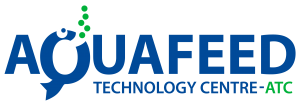National algae plant opened

On Tuesday 22 November, Minister of Trade Monica Mæland officially opened the University of Bergen’s new pilot project plant for growing of micro algae at the Technology Centre Mongstad, north of Bergen. The goal is to develop micro algae to use as feed in the aquaculture industry.
The new project plant at the Technology Centre Mongstad (TCM) is designed to test and cultivate different micro algae with high levels of Omega-3, transforming CO2 in the process. 18 million Norwegian kroner (NOK), or approximately 2 million Euros, have been invested in the centre.
Large scale production
Until now, the cultivation of promising algae strains have been tested in a laboratory facility at the Department of Biology at the University of Bergen (UiB). With the opening of the new plant at TCM, the production of algae will be on a larger scale, so that the researchers together can use Omega-3 rich algae in fish on an industrial scale.
“The new research facility provides the basis for developing more knowledge about the full value chain in the sea, from the choice of the right kind of micro algae to the production of Omega-3 fatty acids,” says Hans Kleivdal, who is research director at Uni Research Environment and Professor II at UiB. He is the academic coordinator for the project.
Research and industry working together
UiB has been working closely with the Seafood Innovation Cluster, a Norwegian Centre of Expertise, to establish the national micro algae plant. Through joint building of knowledge and expertise on sustainable bio-based production of Omega-3 based on the use of CO2 and micro algae, the partners in the new project at Mongstad hope to further promote the strong aquaculture research and industry in the Bergen region. There will be several opportunities for students and research positions (PhD, postdoctoral level, master’s students) as part of the new research plant, which is supported by the Norwegian ministry of trade. One of the main initiatives is a new education programme for an integrated master’s degree in sustainable seafood and aquaculture.
The new facility has two buildings, a greenhouse for biomass production and an operations building with a laboratory and neseccary processing equipment. Micro algae are produced through the process of photosynthesis, the combination of nutrient, water, sun and CO2. The technology centre has been scaled to process 100,000 tons of CO2 annually.
A joint company, CO2Bio AS, is responsible for operating the plant in cooperation with the University of Bergen. CO2Bio is owned by Marine Harvest, Lerøy Seafood, EWOS, Salmon Group, Grieg Seafood, Uni Research, Bergen Teknologioverføring AS (BTO), and Nordhordland Næringslag. The University of Bergen is the constructor of the plant and also is in charge of the academic work at the facility.

